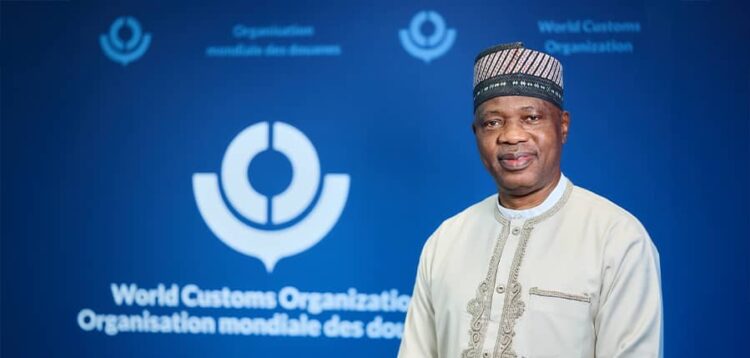: The Disappearing Integrity: A Reflection on Abike Dabiri-Erewa’s Transformation from Compassionate Journalist to Controversial Politician. By Chidi Ekeh

The Disappearing Integrity: A Reflection on Abike Dabiri-Erewa’s Transformation from Compassionate Journalist to Controversial Politician

The Nigerians in Diaspora Commission (NiDCOM) has drawn significant attention for its swift and decisive response to the incendiary remarks made by Amaka Patience Sunnberger, a Canada-based Nigerian who, in a widely circulated TikTok meeting, made alarming threats against Yoruba and Benin people. Sunnberger’s comments, advocating violence and specifically poisoning these groups, have rightly sparked outrage and calls for her prosecution. However, as we delve deeper into the actions of NiDCOM, led by its chairperson, Abike Dabiri-Erewa, we must critically examine why this particular case has garnered such rapid attention while other pressing issues involving Nigerians abroad remain inadequately addressed.

It is necessary to begin by unequivocally condemning the hateful rhetoric and incitements to violence expressed by Sunnberger. Her words were dangerous, irresponsible, and have no place in civil discourse. In a country like Nigeria, which has long grappled with ethnic tensions, such comments only serve to exacerbate division and violence. It is within this context that NiDCOM’s decision to petition Canadian authorities, urging an investigation and prosecution of Sunnberger, could be seen as a proactive step in preventing the escalation of ethnic discord. Yet, one must wonder if this falls squarely within the mandate of NiDCOM, a body created to protect the interests of Nigerians abroad, not to facilitate their prosecution in foreign lands.
**NiDCOM: An Inconsistent Advocate for Nigerians Abroad?**
NiDCOM’s primary mandate is to engage the Nigerian diaspora, leveraging their contributions towards national development and ensuring their rights and welfare are protected. However, this mandate seems to be selectively enforced. We have witnessed numerous instances where Nigerians abroad have been in dire need of assistance, only for NiDCOM to respond with hesitance, bureaucracy, or outright inaction.

Consider the case of Nigerians who have found themselves on the wrong side of foreign laws, often in circumstances that reflect the complex realities of being an immigrant in a hostile environment. Many of these individuals have faced harsh penalties, including death sentences in countries with rigid and unforgiving legal systems. Yet, NiDCOM’s responses in these cases have often been sluggish, marred by the challenges of navigating foreign legal systems and a lack of sufficient resources. When Zainab Aliyu, a young Nigerian woman, was wrongfully detained in Saudi Arabia on drug charges, it took significant public pressure and months of legal wrangling before NiDCOM could secure her release. Even then, the process was fraught with delays and uncertainty.
Contrast this with the swiftness with which NiDCOM acted in Sunnberger’s case. Within days of her video going viral, NiDCOM had identified her, filed a petition with Canadian authorities, and publicized its efforts to bring her to justice. The question then arises: Why this sudden urgency? Why does NiDCOM seem more eager to see Sunnberger punished than to address the ongoing plight of countless Nigerians in equally dire situations abroad? This discrepancy raises troubling questions about the priorities and biases of the commission under Dabiri-Erewa’s leadership.
**Abike Dabiri-Erewa: A Shift in Perspective?**
Abike Dabiri-Erewa is no stranger to the spotlight. Before her political career, she was a celebrated journalist with the Nigerian Television Authority (NTA), where she made a name for herself as a compassionate storyteller and advocate for the marginalized. Her tenure as the anchor of “NTA Newsline” was marked by her ability to connect deeply with viewers, bringing to light the stories of those who were often forgotten by society. She was known for her investigative work, such as her dedication to resolving the case of “Mary, the Miracle Baby,” and for her profound empathy, which was most poignantly displayed when she led the nation in mourning the tragic death of Tokunbo Ajayi. It was during these moments that Dabiri-Erewa earned the trust and admiration of millions of Nigerians, who saw her as a voice for the voiceless.
But the Abike Dabiri-Erewa we see today seems a far cry from the one who once brought the nation to tears on live television. The swift, almost punitive, action against Sunnberger has led some to question whether Dabiri-Erewa’s current role has distanced her from the values she once championed. Has the weight of political office, with its attendant pressures and biases, altered her perspective? More disturbingly, could her actions in this case be influenced by a personal or ethnic bias that contradicts the inclusive, empathetic persona she once embodied?
**Ethnic Bias: A Troubling Undercurrent?**
Dabiri-Erewa’s leadership of NiDCOM has not been without controversy. There have been persistent accusations of ethnic bias, particularly against the Igbo community. Her responses to issues involving the Igbo, whether within Nigeria or in the diaspora, have often been criticized as lacking in empathy or urgency. These concerns are not without basis.
For instance, Dabiri-Erewa’s reaction to the plight of Nigerians in Indonesia, many of whom are of Igbo descent, drew widespread condemnation. When criticized on social media for NiDCOM’s perceived inaction, she responded dismissively, using derogatory language and implying that those affected were involved in drug-related activities. This comment was not only insensitive but also reflective of a broader trend in Nigerian politics where ethnic affiliations often overshadow national unity. Such remarks have understandably fueled perceptions that Dabiri-Erewa is less supportive of the Igbo community, a perception that is only reinforced by her swift action against Sunnberger.
This perceived bias becomes even more concerning when we consider other cases of hate speech and incitement in Nigeria. The country has seen a proliferation of divisive rhetoric from various quarters, including the controversial statements of Simon Ekpa, a self-proclaimed leader of the Biafra movement. Ekpa’s inflammatory remarks have contributed to significant unrest and insecurity in the South-East region, yet NiDCOM has remained notably silent on this issue. Similarly, the “Yoruba RONU” chorus, which has stoked ethnic tensions, has not been met with the same level of condemnation or action from NiDCOM. This selective outrage raises the question: Is Dabiri-Erewa’s zeal for justice in Sunnberger’s case driven by a genuine concern for national unity, or is it influenced by her personal biases against the Igbo community?
**A Call for Reflection and Accountability**
It is not too late for Abike Dabiri-Erewa to return to the principles that once defined her career. As chairperson of NiDCOM, she holds a position of immense responsibility and influence. The decisions she makes, and the actions she takes, impact not only the lives of individual Nigerians abroad but also the broader perception of Nigeria as a nation that values justice, equity, and unity.
Dabiri-Erewa must remember the days when she stood as a beacon of hope for the marginalized, the forgotten, and the oppressed. She must recall the deep empathy that drove her to fight for justice on behalf of those who had no voice. The Nigerian diaspora, diverse and vibrant as it is, deserves a leader who will stand for all Nigerians, regardless of their ethnic background or the nature of their plight.
The swift action against Amaka Sunnberger, while commendable in its intent to curb hate speech, must be balanced with an equally robust response to the many other pressing issues facing Nigerians abroad. Dabiri-Erewa must ensure that NiDCOM’s resources and efforts are directed towards the protection and support of all Nigerians, not just the prosecution of those who err. Moreover, she must confront the accusations of ethnic bias head-on, addressing them with transparency and a renewed commitment to the values of inclusivity and fairness.
The Abike Dabiri-Erewa who led the nation in mourning Tokunbo Ajayi, who wept with mothers and fought for the downtrodden, must find her way back to the forefront of her work at NiDCOM. The country needs that Abike now more than ever—a leader who can navigate the complexities of diaspora issues with the same compassion, integrity, and dedication that once defined her journalism career.
In doing so, she will not only restore the trust of those who feel alienated by her current actions but also reaffirm her legacy as a true advocate for all Nigerians, both at home and abroad. It is a legacy worth fighting for, and one that can only be sustained through a steadfast commitment to justice, equity, and the unity of Nigeria’s diverse people.
Chidi Ekeh writes from Abuja FCT Nigeria
The opinion shared in this article is the opinion of the writer and not opinion of Ebony Herald International Magazine management



